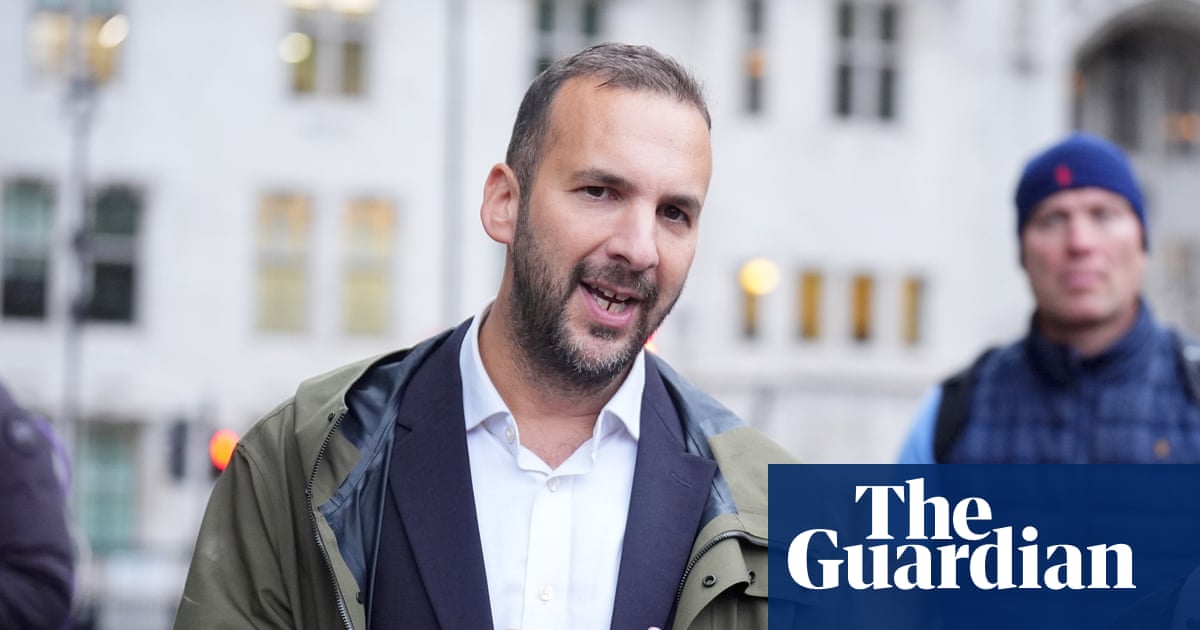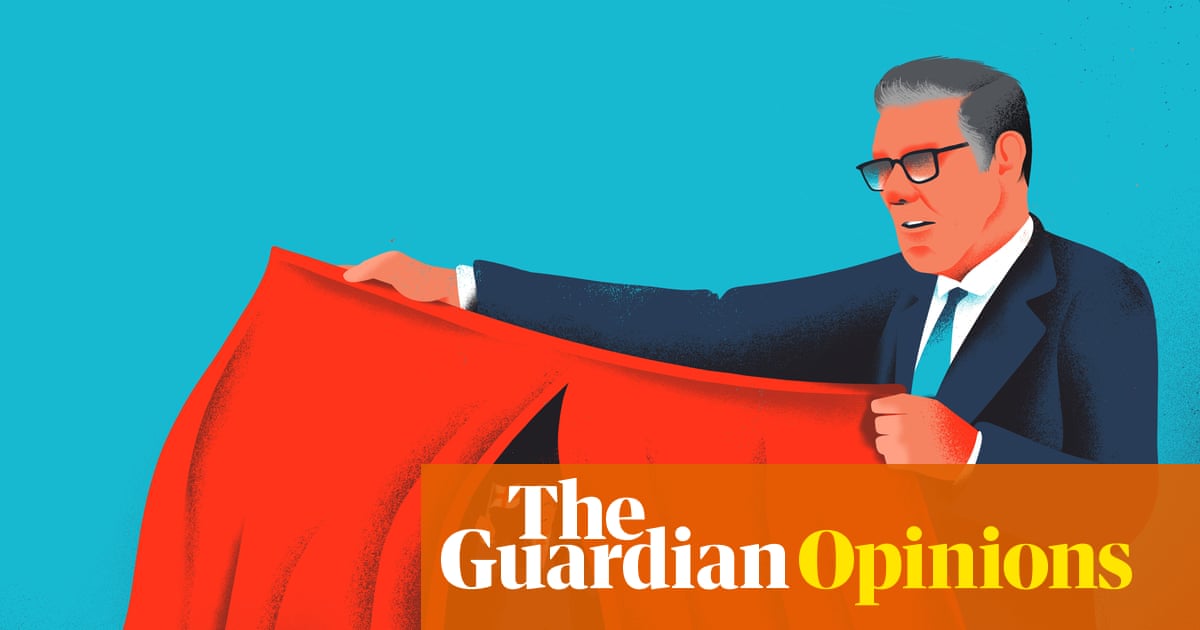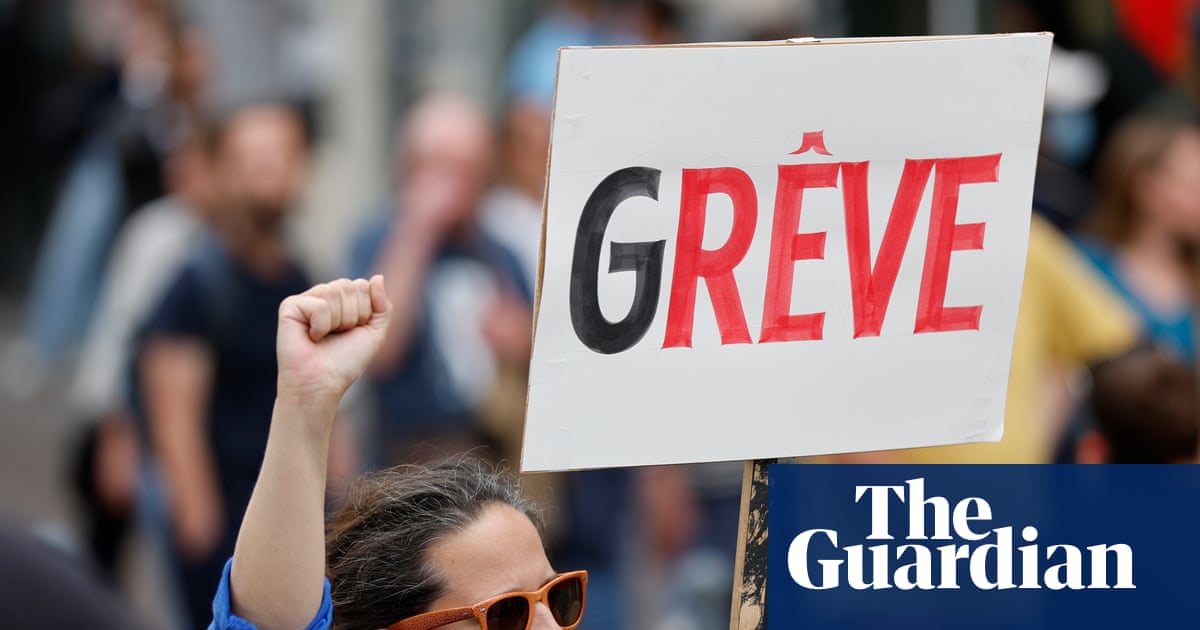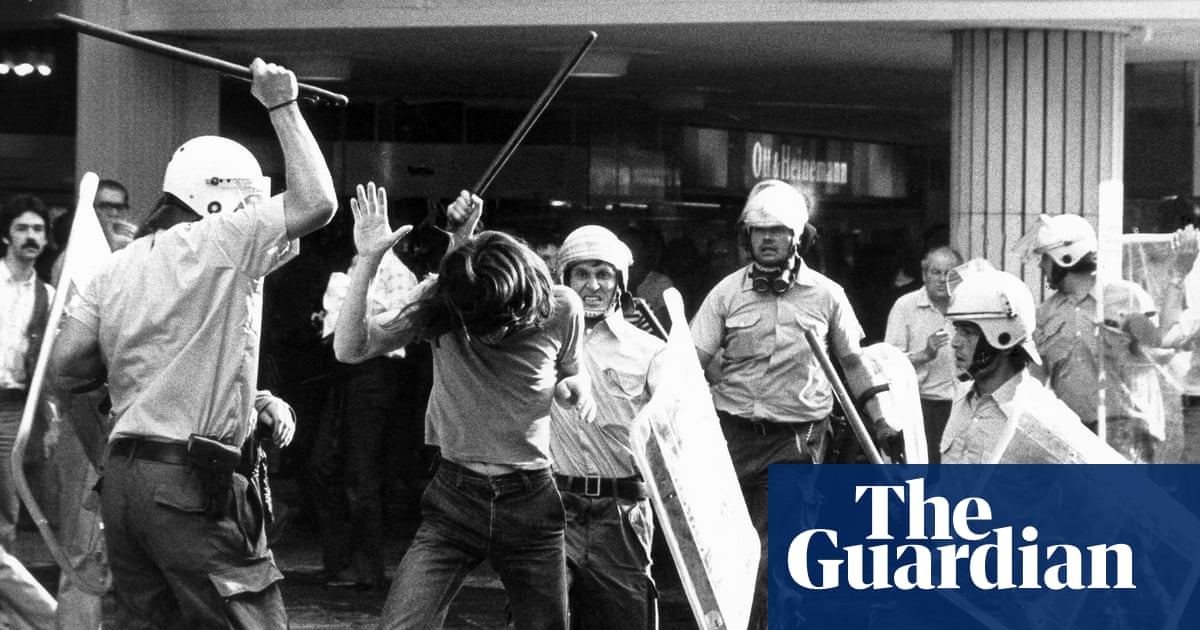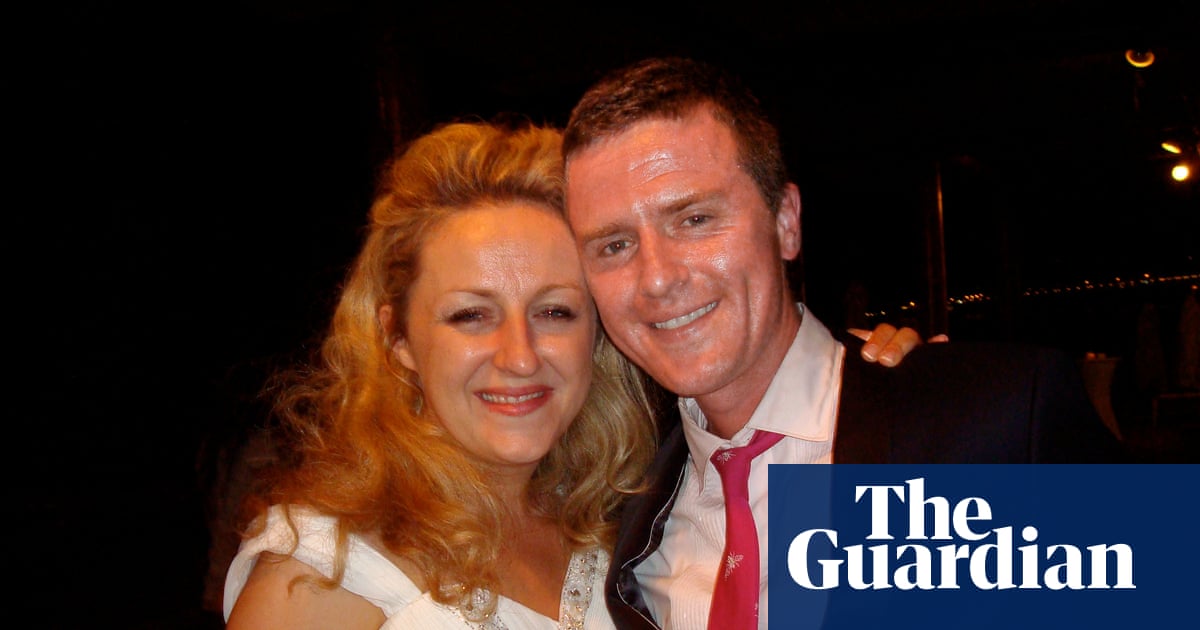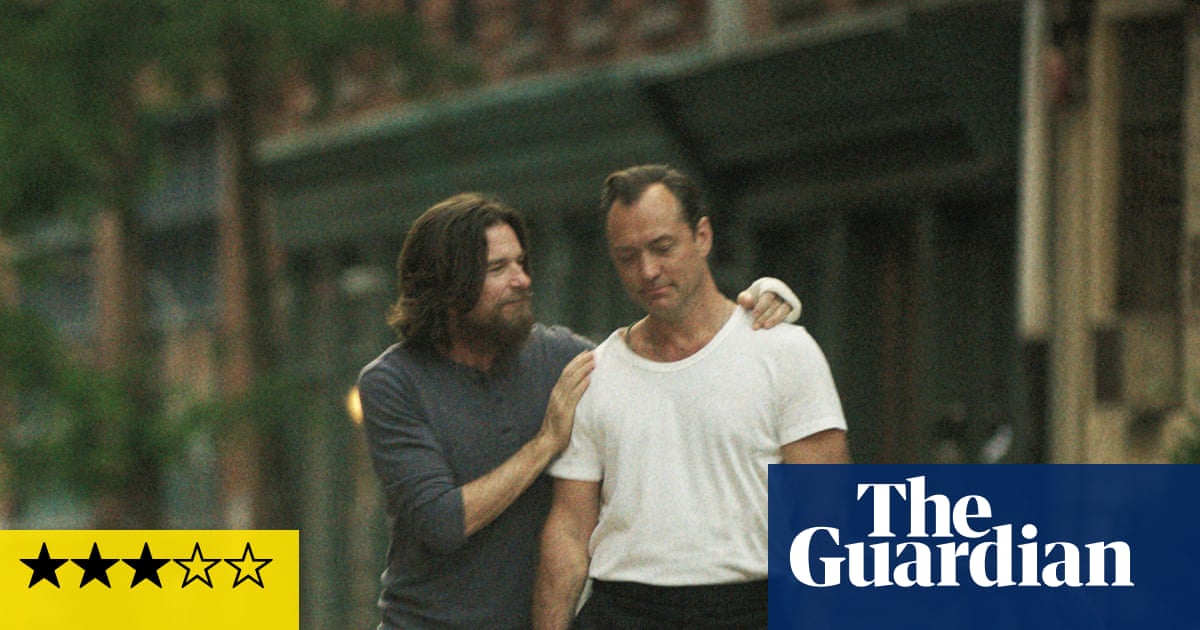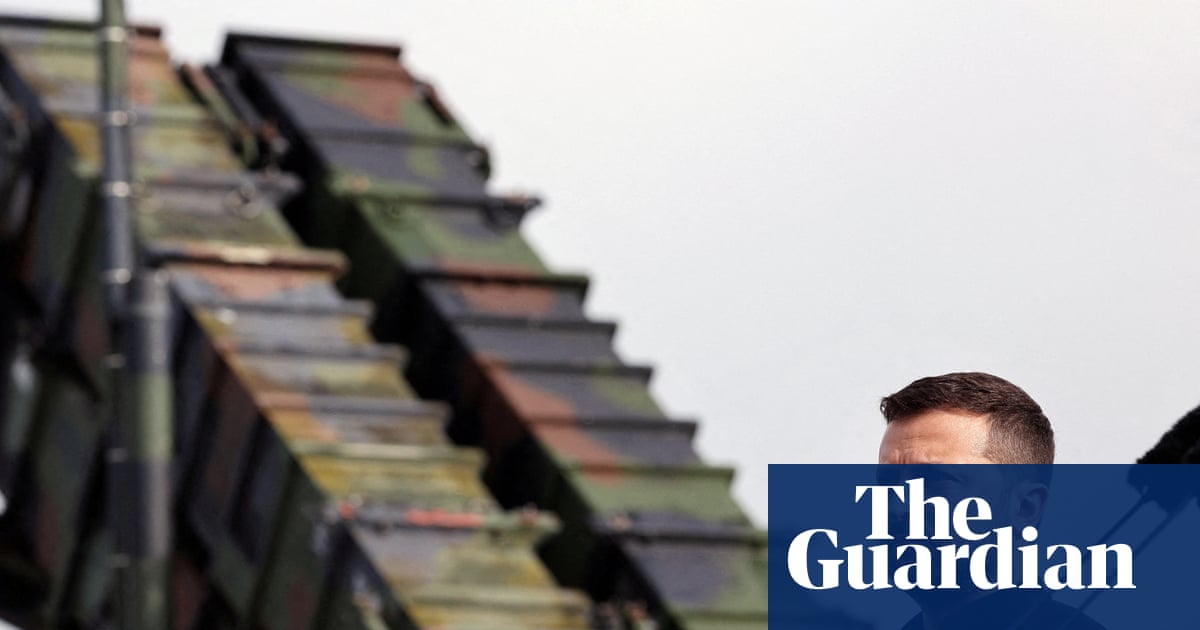Welcome to the end, if you will, of a Linekera. As we head towards Sunday night and last things, last days, last matches, Last Matches of the Last Days, towards the inevitable husky, poignant, carefully scripted farewell, towards the sense, because this is the BBC sofa, of something that feels less like a broadcaster ending his term of employment, more like three men in shiny shirts burying their pet rabbit. As we head towards all of this, it is probably a good time to look back at Gary’s best bits.
This is easy enough. For the past 22 years, capped by this weekend’s accelerated farewell from the BBC , Gary Lineker has been an excellent sports broadcaster and an ideal avatar of the courtly, cosy, quietly A-list BBC identity. Not just very good saying things such as “And now to Goodison” in between some football highlights, but also perfect for the role of flagship anchor, a kind of televisual red pillar box, out there in iconic tight silky shirt, heartstrings-smile, the shared journey from lithe and boyish camera magnet through the extended silvery dad-fox years.
Lineker didn’t innovate, push the broadcasting envelope or say challenging, or even very interesting things. You could say he hasn’t presented 45,086 episodes of MOTD. He has instead presented the same episode 45,086 times. But this is the whole point, something that is not just deceptively hard to do, but impossible if you don’t have that indefinable televisual presence, the ability to become, without seeming to reach for it, the broadcasting equivalent of an indispensable piece of family furniture, the barley twist dining table, the piano stool, the ancestral gravy boat.
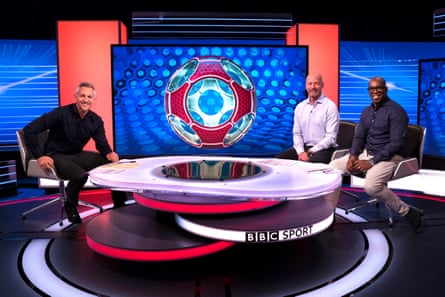
Other best bits: the summer tournaments, when Lineker was very good at letting things breathe, making it feel epic and ceremonial. The 2006 World Cup was like having a seat at the jolliest, most rakish table at a fun wedding. The basic details of the Lineker existence beyond this are also remarkable: brilliant goalscorer, market trader’s lad made good, interventions at his hometown club in hard times, the general sense of a talented, charismatic high‑profile English human with a life of uninterrupted dual-career success. How many of those can you think of in the past 50 years?
At which point, because Lineker has insisted on this via his own actions, it is necessary also to talk about the rights and wrongs of his departure from the BBC. This is also easy. Lineker was right on the basic point. The horror in Gaza has to stop. Hard political pressure is required. De-escalate. Step back. This has gone beyond retaliation for the horrific aggression of 7 October. Death, suffering and misery on this scale are not justifiable. It is a basic human response to say this out loud.
But Lineker is also wrong because he expressed this while sharing a racist trope. His ignorance of this, which he freely admits, is no defence. In fact it makes it worse. To recap, Lineker’s mistake was to share on his social media feed a rat graphic above the phrase “Zionism explained in less than 2 mins”. The rat is not related to the actions of the current leadership of Israel. Instead the rat explicitly encourages the dehumanising of all Jewish people everywhere, with road-tested end results that are, to adapt Lineker’s own phrase, not just “reminiscent of 1930s Germany”, but actual 1930s Germany.
Is ignorance really any kind of excuse here? Why is Lineker trying to “explain” Zionism, a complex response to genocide and the need for self-determination, in two minutes anyway? What kind of person does this? People who like rat emojis. That’s who. And there are a great deal of these around.
Lineker says he didn’t notice the rat and “if he had, he would not have made any connection”. This is perhaps the worst bit of the whole thing. Educate yourself, then, before you pass it on. Lineker is saying here: due to ignorance I am not qualified to talk about this, but I will do so anyway. You don’t get to post, say, a golliwog emoji, then say sorry I don’t know anything about that, never heard of it, but here are my views on racism all the same, please share and like.
Or rather, this can be done if you don’t care or can’t be bothered to learn. But when your platform is derived from a publicly funded national broadcaster you can’t expect to do so without repercussions. The BBC has an explicit duty to be better than this. Lineker has apologised unreservedly. He has also made his own position untenable.
And so, here we are, talking about this crap as though it is genuine political discourse. But there are still some things worth saying about this same crap. The first, and most obvious, is that Lineker should also not be dehumanised for making this mistake. He is not an avatar of hate, just as he also not a free speech hero silenced by The Cabal. He is, like all of us, a human trying to understand the world, while being bombarded by extreme information via a deeply addictive and confusing platform, one that also offers the chance for an instant, emotive response. Mistakes will be made. Minds will be bent into strange shapes. Odd stuff will happen.
But there are also two obvious problems with this dynamic. The first is that the hypocrisy of high‑profile figures can do a great deal of damage to the good causes they seek to support.
This is the same Gary Lineker who spoke eloquently about the moral contortions of the Qatar World Cup, while also having previously taken large amounts of money from Al-Jazeera, a state broadcaster in Qatar, to present football, and in the process become the actual face of Qatari sportswashing either side of the successful World Cup bid in 2010. Again Lineker claimed ignorance, and maintains he pulled out of the arrangement when “it became clear what was happening”. Although, of course, it was already clear if you chose to look.
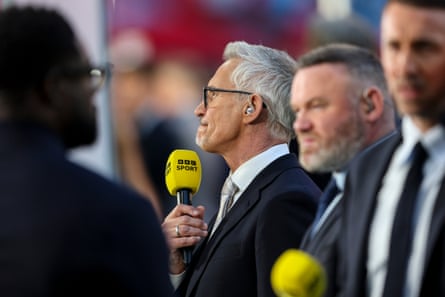
This is also the same Lineker who spoke about Fifa’s “nauseating” corruption after the successful Russian World Cup bid, who advised all “clean” countries to boycott the tournament, and who then presented Fifa’s draw from Moscow in 2017. He justified this by saying things would be different under Gianni Infantino. He was right. They’re worse.
More to the point, in the process every other critic of Qatar, Russia and Fifa, those who genuinely risk their livelihoods and wellbeing exploring these issues, also loses another chunk of legitimacy, also gets to look ridiculous, more easily dismissed as just another Lineker. It can’t be that bad: look, even Gary’s on board now! The answer is not to be silent. But don’t borrow those clothes unless you intend to actually wear them.
Plus this is of course now the same Gary who can rage against the tropes of Nazi Germany, who saw his BBC colleagues go on strike to support his right to do so, but then can also personally reproduce a trope of Nazi Germany on his social media account, thereby making the strike, the energy, the pay sacrificed on his behalf, look fairly silly.
Does any of this matter, beyond the obsession with celebrity figures, or the circular brain‑rot of the internet? It does at least point to the only issue of any real importance here. It remains a genuinely extraordinary thing that Gary Lineker, the man who is very good at saying: “Alan, you wanted to talk about the goalkeeping,” has become a source of such wild and polarised rage.
The world is full of much more cynical, sinister and genuinely influential people. Lineker’s views are unremarkable broad left. Why is his the only public voice on the current issues, the one that has been unravelled and debated and news-headlined for the past week?
In a sense Lineker is a victim of this too. In any sane version of the public discourse his views would be drowned out and submerged by figures of genuine relevance willing to speak out. Where are the public intellectuals, the archbishops, the supremely informed correspondents, the MPs who are educated and fearless enough to at least voice views on international affairs? It should be seen as a genuine shared failing, the ultimate comment on an inane celebrity culture that the most widely amplified voice here is not Tony Benn or Gore Vidal or Malcolm Muggeridge, but the man who says: “Next up our choices for goal of the month,” and is famous for doing a show in his pants.
Match of the Day will at least go on. It probably needs some slight nips and tucks, but there is still a space for the red pillar box presenter. And this is happily a transferable quality. Give Kelly Cates five years and the nation will have a new Saturday night favourite, a new source of Saturday night comfort on the lighted square in the corner of the room.
As for Gary, it has been an extraordinary public life to this point, given a platform by old media, and driven down another track now by its uneasy interaction with the new. Although, given the state of the BBC he leaves behind, given his own vast and profitable Empire of Podcast, given the general trend towards untethered, unedited voices, you suspect it may just be Lineker who wins this one in the end.

 3 months ago
116
3 months ago
116
